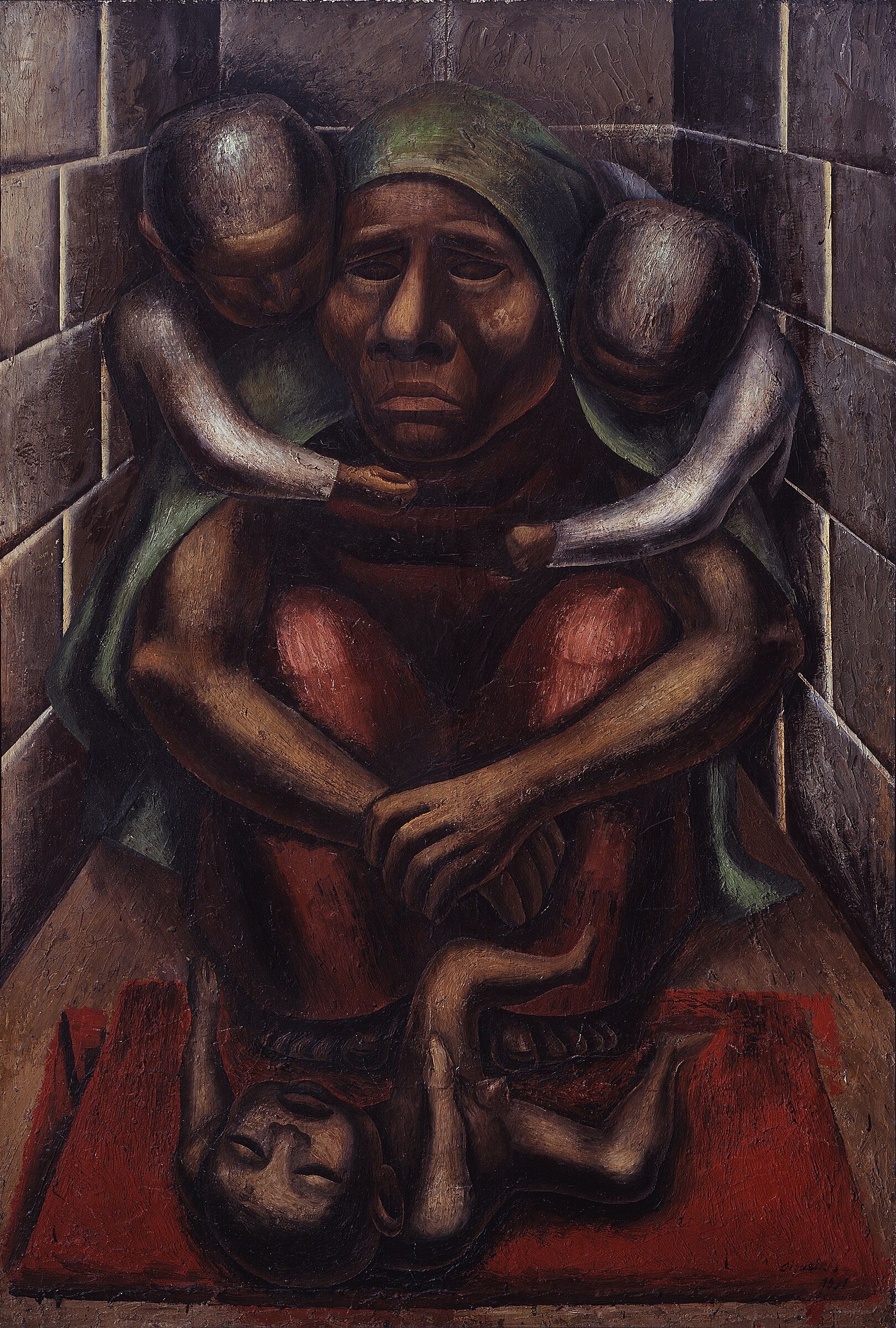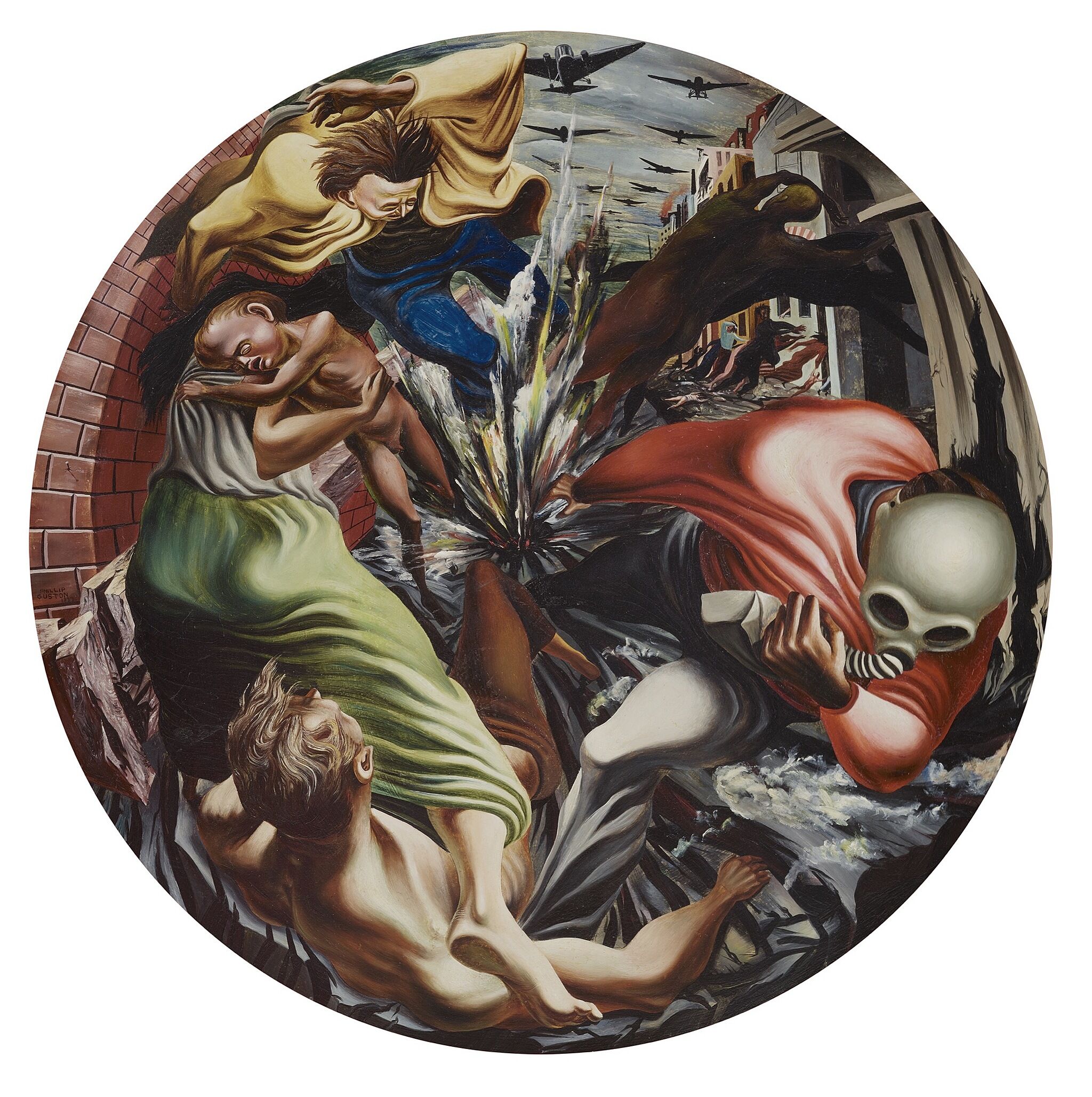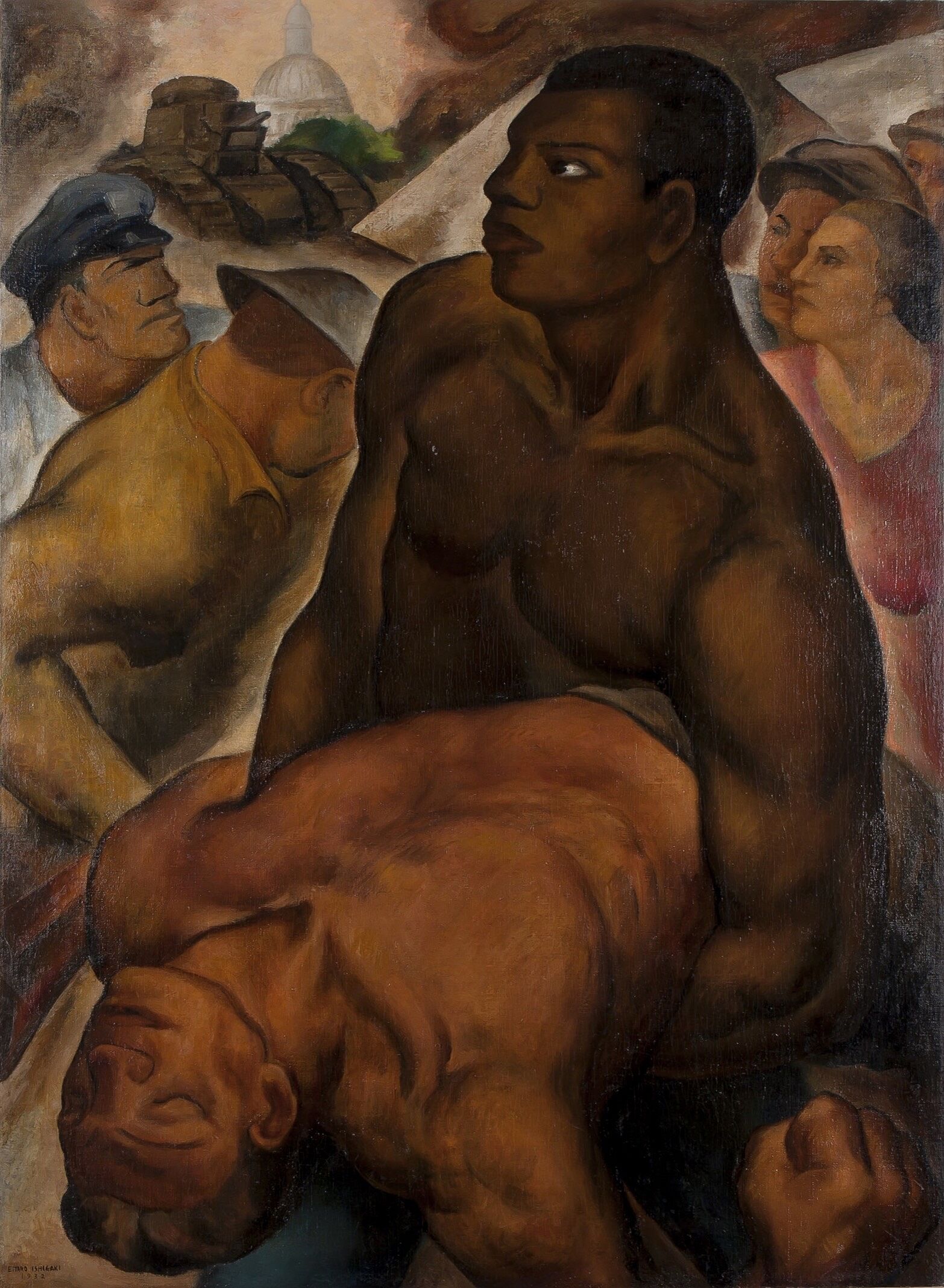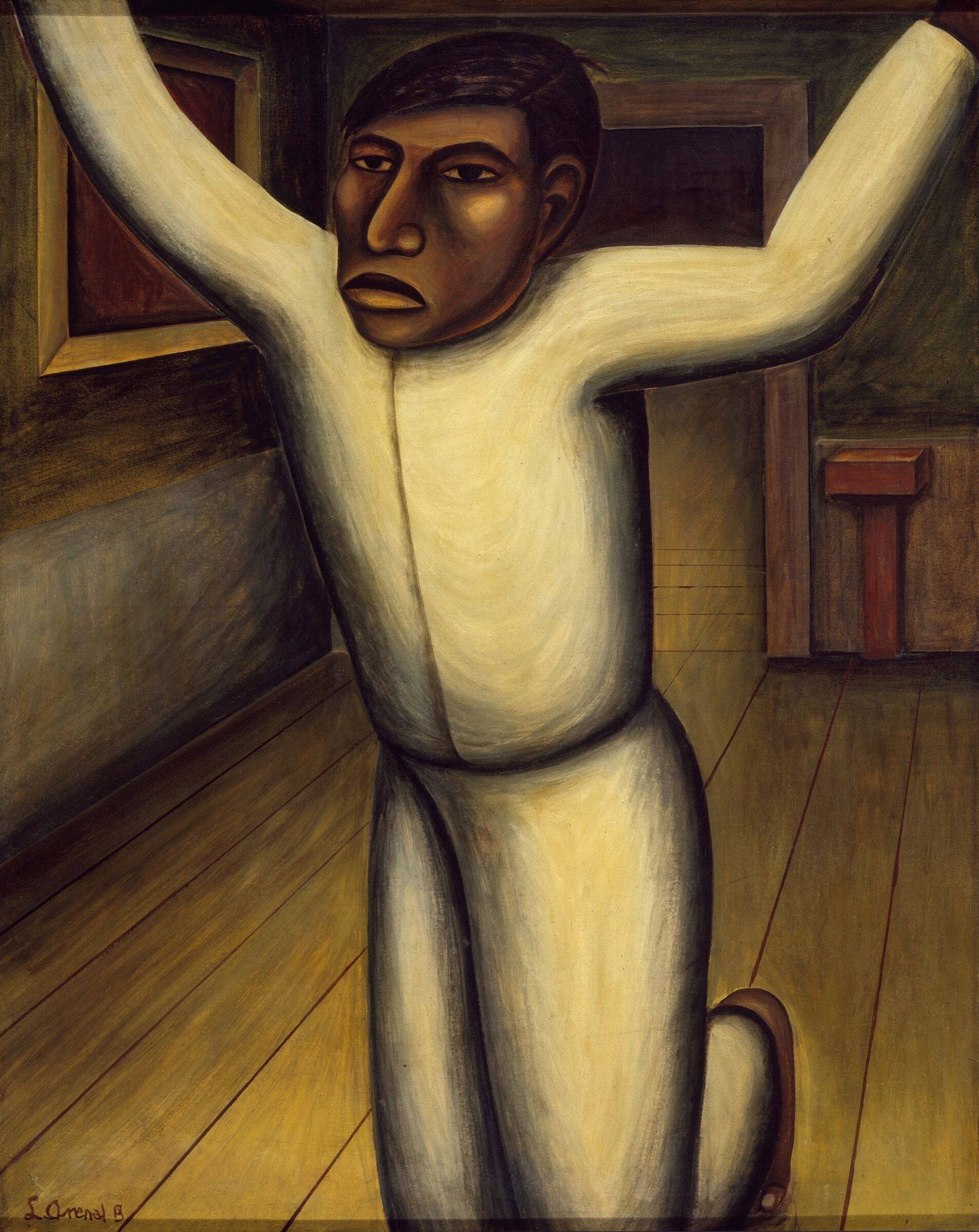Vida Americana: Mexican Muralists Remake American Art, 1925–1945 | Art & Artists
Feb 17, 2020–Jan 31, 2021
Vida Americana: Mexican Muralists Remake American Art, 1925–1945 | Art & Artists
Siqueiros in Los Angeles
3
David Alfaro Siqueiros was the most politically and artistically radical of the leading Mexican muralists, believing that art must be revolutionary not only in its political content but in its materials and techniques. Of the three murals he made in Los Angeles in 1932, Tropical America has proven the most lasting in its significance. Siqueiros’s encounter in Los Angeles with industrial technology and the Hollywood movie industry was formative in his artistic development, leading him to adopt the tools of industry—spray guns, blowtorches, airbrushes, and photo projections—and to establish a collectivist approach to art making, both of which aligned with his Communist ideology. The “Bloc of Mural Painters,” as he called his collaborator-assistants, included artists Luis Arenal, Philip Guston, Reuben Kadish, and Fletcher Martin. They were deeply influenced by Siqueiros’s aesthetic, especially his union of the sweeping rhythms of European Baroque art with the solid, monumental forms of Olmec and Aztec sculpture. As Kadish later asserted, “Siqueiros coming to L.A. meant as much then as did the Surrealists coming to New York in the Forties.”
Artists
- Charles Henry Alston
- Ramón Alva Guadarrama
- Lola Álvarez Bravo
- Luis Arenal
- Belle Baranceanu
- Will Barnet
- Carleton Beals
- Thomas Hart Benton
- Henry Bernstein
- Emil Bisttram
- Julius Bloch
- Lucienne Bloch
- Anita Brenner
- Jacob Burck
- Elizabeth Catlett
- Stuart Chase
- Howard Cook
- Miguel Covarrubias
- Aaron Douglas
- Sergei Eisenstein
- Jesús Escobedo
- Philip Evergood
- Seymour Fogel
- Ford Motor Company
- Hugo Gellert
- Xavier Gonzalez
- Marion Greenwood
- William Gropper
- Philip Guston
- Eitarō Ishigaki
- María Izquierdo
- Everett Gee Jackson
- Joe Jones
- Frida Kahlo
- Jacob Lawrence
- Harold Lehman
- Michael Lenson
- Mardonio Magaña
- Bendor Mark
- Fletcher Martin
- Leopoldo Méndez
- Carlos Mérida
- Edward Millman
- Tina Modotti
- Roberto Montenegro
- Emilio Gómez Muriel
- Hideo Benjamin Noda
- José Clemente Orozco
- Jackson Pollock
- Alfredo Ramos Martínez
- Anton Refregier
- Diego Rivera
- Ben Shahn
- Henrietta Shore
- Mitchell Siporin
- David Alfaro Siqueiros
- Harry Sternberg
- Paul Strand
- Thelma Johnson Streat
- Rufino Tamayo
- Edward Weston
- Charles White
- Hale Aspacio Woodruff





